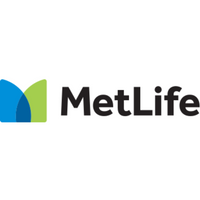Employer duty of care: employers have a social responsibility to employees

Our Re:Me report, which explores the changing relationship between employers and employees amid the global pandemic, found that seven in ten employees now feel ‘employers have a social responsibility to them’. A belief that beyond work itself, employers now have an increased role in their welfare, wellbeing and overall happiness. Yet there is significant variation in how strongly this is felt by employees working in companies of different sizes. While 66% of SME workers feel this is true, the figure rises to 70% for those in mid-sized firms, and 80% for those working in enterprise companies. And this shift in beliefs is felt just as strongly by employers (62%).
Shifting employee expectations
The research found that employees had higher expectations of an employer experience more tailored to them as an individual. 61% of employees admitted that they expect their employer to make allowances for their personal circumstances.
For employees with children, that could range from more flexibility around childcare commitments, to family-related health benefits for children and dependents. And while 62% of SMEs agree with this, the figure rises to 64% for enterprise companies and 69% for larger mid-sized companies.
Employer-employee trust in the workplace has never been so important, but has seen significant changes in recent months. Over a quarter of employers and almost the same number of employees feel that the company’s response to Covid-19 has somewhat or significantly weakened their trust. This can have longer term repercussions for employers if the trust is not rebuilt quickly. It is crucial that employers realign their priorities when it comes to supporting employees, and work with them to establish benefits that are more targeted and tailored personally to them and their family.
The impact on employee benefits packages
Adrian Matthews, employee benefits director at MetLife UK, comments: “The shift to working from home has naturally allowed colleagues and employers to have a greater insight into personal lives and home working set ups. But more than this, employers have learnt a great deal about their staff and what is truly important to them as they seek to find ways to sensitively accommodate their needs. For example, those needing to shield, or those with caring responsibilities for parents or loved ones. It has undoubtedly shifted the traditional employer/employee dynamic.
“This changing relationship between employers and employees is also being carried into what employees are expecting from their benefits packages,” believes Matthews. “Our research found that 72% of UK employers now feel that the relationship has changed, as do 62% of employees, with employers and employees needing to now reset their relationships.
“In addition, employees have become acutely aware of their own health and that of their family and those around them. The benefits and support that employers offer post-Covid are going to become much more central to employees’ lives, with benefits such as income protection, critical illness and health screening expected to rise to the fore,” he says.
“Employers will need to play a greater role in supporting employees through offering benefits packages that aide employees’ health and wellbeing while at work and at home. As well as offering quality benefits packages, employers’ must also make employees aware of the services already on offer and ensure strong take up for each of the offerings. If interest remains low, employers should speak openly to their staff about why this may be and if there is an equivalent service that could be offered instead. This is not a one-time conversation. Employers and employees must establish an open forum in the post-Covid environment to ensure that everyone is being properly and equally supported,” concludes Matthews.
Recognise, the first chapter in the Re:Me report series from MetLife, explores the change in relationship between employers and employees. The pandemic has shown that when it comes to supporting employees, it is no longer one-size-fits all and employers must recognise the changes in relationships and the gaps in what they are offering their employees.
This article is provided by MetLife.
Supplied by REBA Associate Member, MetLife
At MetLife our aim is to help businesses prepare for the future, perform at their best and protect their people.







